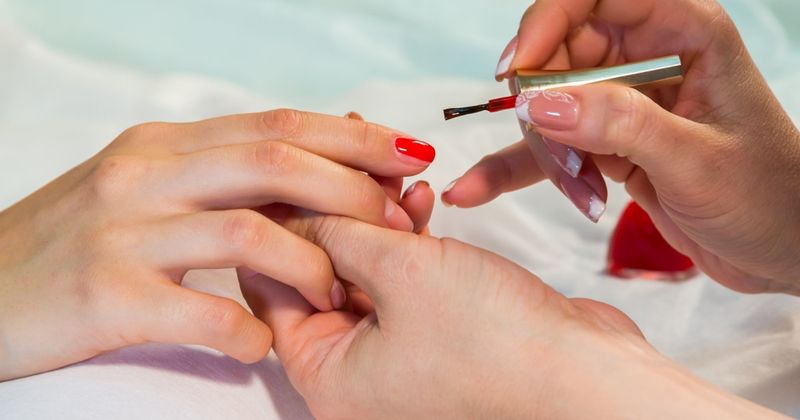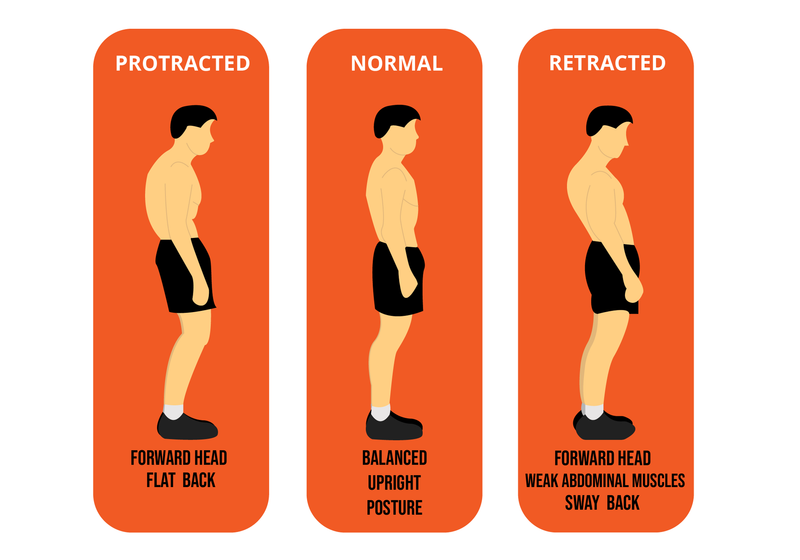15 Common Habits That Undercut Your Class — And 5 Mistakes That Really Hurt Your Look
In a world where first impressions often define relationships, maintaining a sense of class and elegance is crucial. Yet, it’s not just about wearing the right clothes or saying the right things.
It’s about the subtle habits and choices we make every day that can either elevate our presence or diminish it.
This blog post explores 15 common habits that can slowly erode your sense of class and 5 standout mistakes that can instantly dull your polished appearance.
Embracing self-awareness and making mindful changes can transform how others perceive you and how you see yourself.
1. Gossiping under the guise of venting

Gossip is a social habit that can quickly erode trust and respect. When disguised as venting, it often reveals more about the speaker than the subject. Imagine sitting in a cozy café, sharing whispers with a friend about a colleague’s missteps.
It feels harmless, yet it inadvertently paints you as untrustworthy in the eyes of others. Gossip may offer a momentary rush, but it chips away at the class and dignity you may otherwise project.
The words you choose in these moments define you. Instead of indulging in gossip, consider discussing ideas and ambitions. It’s much more rewarding and reflects a more polished character. People are drawn to those who uplift and inspire, not those who tear down. By steering clear of gossip, you maintain an aura of discretion and class that others will admire and respect.
2. Oversharing deeply personal details too soon

At a dinner party, the ambiance is warm, and laughter fills the air. Suddenly, one guest begins to share intimate details of their life with people they’ve just met. Oversharing personal anecdotes can be a social blunder that undermines your class and presence. While vulnerability can be a strength, caution is crucial, especially in new acquaintances.
Immediate intimacy can make others uncomfortable, leaving them unsure of how to respond. It risks creating a barrier rather than the connection you may seek. Instead, allow relationships to develop naturally, with personal stories emerging over time.
This approach showcases emotional intelligence and respect for boundaries. It positions you as someone who values genuine connections and respects the social nuances of sharing. Maintaining this balance is an art, and mastering it enhances your overall poise.
3. Speaking too fast, too loud, or too much

In the hustle and bustle of daily life, it’s easy to fall into the pattern of speaking quickly, loudly, or excessively. Picture a bustling office where a colleague’s voice dominates the room, leaving others struggling to contribute. Such behavior can inadvertently overshadow your class and create an environment where others feel unheard.
Effective communication is about more than the words spoken; it’s about pacing, tone, and the ability to listen. By slowing down, moderating your volume, and ensuring others have space to express themselves, you foster an atmosphere of mutual respect. This approach not only enhances your class but also strengthens relationships.
Engage in conversations with curiosity and balance. This not only demonstrates self-awareness but also encourages meaningful exchanges, revealing a confidence rooted in respect and understanding.
4. Dismissing kindness as weakness

In a competitive world, kindness is often misconstrued as weakness. Imagine a workplace interaction where a colleague offers assistance, only to be met with a dismissive response. Such reactions can diminish your class, as they overlook the strength and grace embodied in kindness.
Rejecting kindness sends a message of superiority or insecurity, neither of which align with a refined demeanor. Instead, embracing and reciprocating kindness reflects emotional intelligence and courage. It demonstrates an understanding that true strength lies in the ability to be compassionate and considerate.
Adopting this mindset not only elevates your presence but also fosters a positive environment where collaboration thrives. The ripple effects of kindness can transform interactions and perceptions, enhancing both personal and professional relationships.
5. Dressing for shock instead of self-respect

Fashion is a powerful form of self-expression, but dressing to shock rather than to honor oneself can undermine your class. Consider an elegant gala where a guest’s attire screams for attention, overshadowing their natural charm. While bold fashion choices can be exciting, they should complement rather than dominate your persona.
Dressing with self-respect involves choosing outfits that reflect your personality and the occasion, rather than seeking to provoke. This balance speaks volumes about self-awareness and respect for oneself and others.
By selecting attire that aligns with your values and the context, you convey confidence and sophistication. It’s about finding that sweet spot where style meets substance, leaving a lasting impression that’s both memorable and admirable.
6. Swearing constantly—it kills grace

In moments of frustration, it’s tempting to let expletives fly. Yet, constant swearing can erode the grace that defines a cultivated presence. Picture a lively street café where every sentence is punctuated by curses draw unwelcome attention.
Language is a reflection of the mind and spirit. While swearing may sometimes seem like a harmless expression, it often detracts from the poise and elegance that word choices can convey. Resisting the urge to swear, especially in public or professional settings, nurtures a more polished image.
Instead, cultivate a vocabulary that reflects intelligence and respect. This conscious effort not only enhances personal interactions but also elevates the broader perception of who you are. Grace isn’t about perfection; it’s about embodying qualities that inspire respect and admiration.
7. Always needing the last word

The need to have the last word can be a subtle yet significant habit that undermines class. Imagine a dinner conversation where one participant insists on having the final say, regardless of the topic. This behavior can overshadow the warmth and connection of the interaction.
Holding this need speaks more to insecurities than to strength. True confidence lies in valuing dialogue over dominance and appreciating diverse perspectives. By allowing others to share the spotlight, you demonstrate a maturity and respect that elevates your presence.
Embracing this approach not only enriches conversations but also strengthens relationships, marking you as someone who values understanding over winning. It’s about creating space for dialogue and fostering an environment where everyone’s voice is heard.
8. Making jokes that tear others down

Humor can be a wonderful tool for connection, but when it comes at the expense of others, it can diminish your class. Picture a lively social gathering where a joke lands heavily, leaving one person embarrassed. The room’s atmosphere shifts, reflecting the discomfort that lingers.
Making jokes that target others often reveals more about the joker’s insecurities than their wit. Genuine humor uplifts and connects without sacrificing kindness or respect. By opting for inclusive and uplifting humor, you create an environment of warmth and acceptance.
This choice not only enhances your own class but also enriches your relationships, leaving an impression of consideration and empathy. It’s about fostering a culture where laughter brings people together rather than tearing them apart.
9. Flaunting wealth or status

Wealth and status can open many doors, but flaunting them can subtly erode your class. Imagine a casual dinner where one guest insists on discussing their latest luxury purchase, overshadowing genuine connection with materialism.
Such behavior can alienate others, as it often highlights a need for validation rather than genuine self-assurance. Class is about subtlety and the ability to engage without relying on external symbols of success.
By focusing on shared experiences and mutual respect, you create a welcoming environment where everyone feels valued. This approach not only enhances your own presence but also fosters genuine connections, transcending superficial measures of success.
10. Never saying thank you—no matter how small the gesture

Gratitude is the cornerstone of a classy demeanor. Picture a bustling coffee shop where a customer receives their order without a word of thanks, missing the barista’s hopeful smile. This small omission can resonate far beyond the moment.
Saying thank you, no matter how small the gesture, reflects a respectful and appreciative nature. It’s a simple yet profound way to acknowledge the efforts of others and maintain an atmosphere of mutual respect.
Incorporating gratitude into your daily interactions enhances your class and leaves a lasting impression. It’s a reminder that elegance is often found in the smallest acts of kindness and acknowledgment.
11. Being overly competitive with other women

In a world often defined by competition, being overly competitive, especially with other women, can undermine your class. Imagine a workplace scenario where subtle glances and undermining comments create tension rather than camaraderie.
Competition can be healthy, driving motivation and growth. However, when it shifts to rivalry, it fosters an atmosphere of distrust and division. Embracing collaboration and support over competition reflects strength and confidence.
By lifting others up and celebrating their successes, you enhance your own presence and create a positive environment. This approach not only elevates your class but also strengthens bonds, promoting a culture of mutual respect and empowerment.
12. Constantly talking about appearance

While appearance holds significance, constantly highlighting it can diminish your class. Picture a social event where one individual steers every conversation back to looks, leaving others feeling disengaged.
Focusing excessively on appearance often overlooks deeper qualities that define true elegance and character. It risks valuing superficial attributes over meaningful connections and insights.
By broadening the scope of conversations to include diverse topics, you invite richer interactions, showcasing a multifaceted personality. This approach not only enhances your own presence but also fosters a more inclusive environment, where everyone feels valued for more than their external appearance.
13. Public arguments that turn heads for the wrong reason

Public arguments can quickly erode your class, transforming a private disagreement into a spectacle. Imagine a restaurant where a couple’s voices rise in dispute, drawing glances and discomfort from other diners.
Such displays often overshadow any prior elegance, as they focus attention on conflict rather than composure. Maintaining grace involves addressing disagreements privately and respectfully, allowing for resolution without an audience.
By choosing to handle conflicts discreetly, you demonstrate maturity and respect for both the situation and those around you. This approach not only preserves your own dignity but also fosters healthier relationships, away from public scrutiny.
14. Needing to outshine instead of uplift

The desire to outshine others can inadvertently diminish your class. Consider a conference where a participant continuously interrupts to highlight their own achievements, rather than allowing the speaker to shine.
Genuine class is about lifting others up, not overshadowing them. By recognizing and celebrating the accomplishments of those around you, you cultivate an atmosphere of mutual admiration and encouragement.
This approach not only enhances your own reputation but also strengthens your connections, creating a network built on respect and support. It’s about finding fulfillment in shared success rather than individual dominance.
15. Making everything about you

In social gatherings, the tendency to make every conversation about oneself can subtly erode your class. Picture a friendly get-together where one individual continually steers discussions back to personal stories, leaving others disengaged.
While sharing experiences is natural, dominating the conversation can alienate those around you, signaling a lack of interest in their perspectives. True elegance involves balancing self-expression with active listening and curiosity about others.
By showing genuine interest in others’ stories, you enrich your interactions and create an inviting atmosphere. This balance not only enhances your own presence but also fosters more meaningful connections, where everyone feels heard and valued.
16. Wrinkled clothes (no matter how nice they are)

Even the most exquisite outfit can lose its charm if it’s wrinkled. Imagine entering a formal event where your attire is less than pristine; the impression it leaves is far from polished. Wrinkles signal a lack of attention to detail, overshadowing the elegance of the ensemble.
Taking the time to ensure clothes are well-pressed conveys a sense of pride and consideration. It’s a small step that makes a significant difference in how others perceive you.
A well-maintained appearance reflects discipline and respect, enhancing your overall presence. It’s a reminder that true elegance often lies in the details, where care and preparation meet presentation.
17. Chipped nails or peeling polish

Nail care may seem minor, yet chipped nails or peeling polish can detract from a polished appearance. Imagine a business lunch where hands are in focus, and any imperfections become apparent.
Maintaining well-groomed nails reflects attention to detail and self-care. It’s a subtle yet powerful aspect of personal presentation that underscores your attention to the finer points.
By ensuring nails are neat and polished, you convey an image of refinement and professionalism. This effort not only enhances your personal appearance but also leaves a lasting impression of meticulousness and care.
18. Slouching or closed-off posture

Posture speaks volumes before a word is even uttered. Picture a social event where one person slouches, giving off an impression of disinterest or insecurity. The way we carry ourselves can significantly influence how others perceive us.
Standing tall with an open posture conveys confidence and approachability. It invites others to engage, creating an inviting atmosphere.
By practicing good posture, you not only enhance your physical presence but also exude a sense of assurance and openness. This subtle change can transform interactions, making you more approachable and respected.
19. Overdone makeup for casual settings

Makeup is a form of artistic expression, yet wearing too much in casual settings can overshadow natural beauty. Imagine a relaxed brunch where one attendee’s heavy makeup draws curious stares rather than compliments.
Balancing makeup with the occasion is key to maintaining a polished appearance. Subtlety often highlights features more effectively, conveying an elegant sense of style.
By choosing makeup that complements rather than conceals, you project confidence in your natural beauty. This approach not only enhances your appearance but aligns with an atmosphere of grace and sophistication.
20. Wearing confidence like a costume—not a core

True confidence radiates from within and doesn’t need to be worn like a costume. Picture a networking event where someone’s attempt to project confidence feels forced, as their body language suggests otherwise.
Authentic confidence is subtle and grounded, reflecting genuine self-assurance. It’s about being comfortable in one’s own skin, rather than performing for others.
By embracing your true self, you convey an aura of authenticity that others find compelling. This inner strength not only enhances your personal presence but also fosters more genuine connections and respect.






